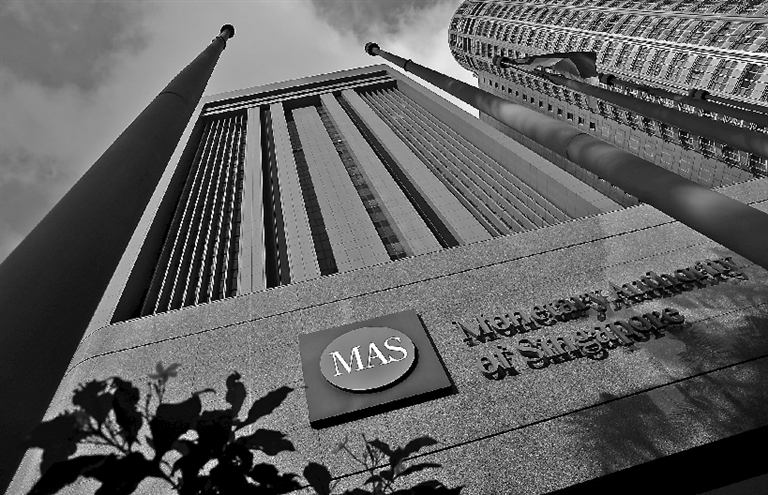
SINGAPORE’S central bank eased monetary policy for the first time in three years yesterday, as widely expected, with the city-state’s bellwether economy narrowly dodging recession. Singapore, which is due to hold an election within months, has like other trade-reliant Asian economies been hit hard by the escalating U.S.-China trade war and a broader global slowdown. The Monetary Authority of Singapore (MAS) manages policy through exchange rate settings, rather than through interest rates as other central banks do, letting the Singapore dollar rise or fall against the currencies of its main trading partners within an undisclosed policy band. The MAS said it would “reduce slightly” the slope of the Singapore dollar’s policy band, using wording that suggested a shallower easing than some had expected. The width and level at which the band was centered was unchanged. The Singapore dollar rose slightly against the U.S. dollar on the day. “It’s a slight reduction in the rate of appreciation. They did not say the policy was neutral so it suggests that the slope is still positive,” said Barclays economist Brian Tan. Eleven economists had all expected Singapore to ease, its first such move since April 2016. Singapore’s economy grew less than expected in the third quarter but avoided slipping into a technical recession, flash data showed yesterday. The MAS increased the slope of the policy band twice last year in efforts to control rising price pressures and strengthen its currency, in its first such tightening moves in six years. But a prolonged tariff dispute between the United States and China has disrupted global supply chains in many trade-reliant economies, including the city state. (SD-Agencies) | 
